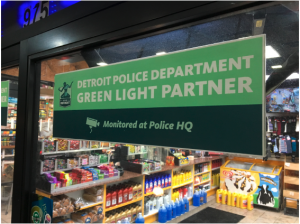Facing the Issues of Facial Recognition and Surveillance
By Anonymous | July 9, 2021
Facial recognition technology is an already well developed and widespread technology which is rapidly expanding to cover all areas of the public and even private life. Its expansion into a near-ubiquitous presence threatens not only individuals’ most fundamental definitions of privacy but also the freedoms of assemblage and protest. Facial recognition technology serves the interests of the existing power structure. Its negative implications do not just pertain to the ways in which it can be used to infringe on an individual’s privacy. Rather, its reach and potential harm is much broader, infringing on society and the power of groups.
One ostensible justification for facial recognition technology is the use by police departments in protecting against crime. However, as the ACLU has pointed out, the narratives that support this use are deceptive. For instance, in 2016 the Detroit Police Department partnered with eight gas stations to install real-time camera connections with police headquarters as part of a ground-breaking crime-fighting partnership between local businesses, the City of Detroit and community groups called “Project Green Light Detroit.” This collaboration was presented to the community as a positive step along the line of a neighborhood watch system.

However, facial recognition technology is a form of general surveillance that allows monitoring of community members even without a warrant or determination of probable cause for the need to monitor them. This is one reason the ACLU is concerned about the expanded use of facial recognition technology in our society: it could easily be used for general surveillance searches because there are ample databases of individual photographs from each state’s motor vehicle license identifying photographs. (https://www.aclu.org/issues/privacy-technology/surveillance-technologies/face-recognition-technology.)
Individual privacy concerns are impacted by the use of facial recognition technology because it can be used in a passive way that does not require the knowledge, consent, or participation of the subjects. Additionally, there are security concerns related to the storage and use of facial recognition data. Facial data is very sensitive and can be quite accurate in identifying an individual. It is not clear that firms and government agencies have adequately managed the security of this data.
https://www.crainsdetroit.com/article/20180104/news/649206/detroit-aims-to-mandate-project-green-light-crime-monitoring
However, even more concerning is the broader societal impact that results from the widespread use of facial recognition data. Because of the extremely broad scope of facial recognition’s surveillance and power, there are more than just individual rights that need to be protected: it is the nature of society as a whole that is at risk of changing. The philosopher Michel Foucault considered the societal impact of surveillance systems, and he used the example of a panopticon to illustrate his theory. The panopticon explanation is an apt metaphor for the far-reaching societal impact of facial recognition systems, as well.
In 1791, British utilitarian philosopher Jeremy Bentham articulated the concept of a panopticon as a type of institutional building designed for social control. (Jeremy Bentham (1791). Panopticon, or The Inspection House.) The building’s design allows a single guard to observe and monitor all of the prisoners of an institution without the inmates being able to tell whether they are being watched at any particular moment.
